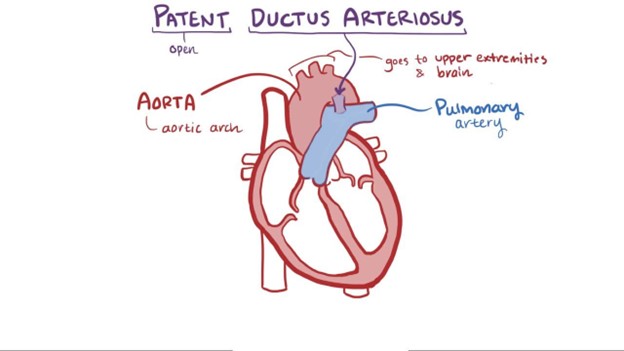A nurse is admitting an infant who has severe dehydration from acute gastroenteritis. Which of the following findings should the nurse expect?
13% weight loss
Bulging anterior fontanel
Bradypnea
Capillary refill 3 seconds
The Correct Answer is A
Nursing Test Bank
Naxlex Comprehensive Predictor Exams
Related Questions
Correct Answer is ["1250"]
Explanation
To calculate the daily fluid requirements for a child, you typically use the Holliday-Segar method, which provides guidelines based on the child's weight:
- For the first 10 kg of body weight, you give 100 ml per kg.
- For the second 10 kg of body weight, you give 50 ml per kg.
- For any weight above 20 kg, you give 20 ml per kg.
First, convert the child's weight from pounds to kilograms. To do this, divide the weight in pounds by 2.2.
For a child weighing 33 pounds:
- The weight in kilograms is approximately 15 kg (33 divided by 2.2).
Now, calculate the fluid requirement:
- For the first 10 kg of the child's weight, you need 1000 ml (10 kg multiplied by 100 ml).
- For the remaining 5 kg, you need 250 ml (5 kg multiplied by 50 ml).
Adding these together, the total daily fluid requirement is 1250 ml.
So, the daily fluid requirement for a child weighing 33 pounds is 1250 ml.
Correct Answer is B
Explanation
A patent ductus arteriosus (PDA) is a congenital heart defect associated with increased pulmonary blood flow. In normal fetal circulation, the ductus arteriosus allows blood to bypass the lungs since the baby receives oxygen from the mother's placenta. After birth, the ductus arteriosus should close, redirecting blood flow to the lungs for oxygenation. However, in some infants with PDA, the ductus arteriosus remains open, causing an abnormal connection between the aorta and the pulmonary artery. As a result, oxygenated blood from the aorta flows back into the pulmonary artery, increasing the workload on the lungs.
The other options are as follows:
A. Coarctation of the aorta - Coarctation of the aorta is a narrowing of the aorta, which obstructs blood flow and leads to increased blood pressure in the upper body and reduced blood flow to the lower body.
C. Tetralogy of Fallot - Tetralogy of Fallot is a combination of four heart defects that results in decreased pulmonary blood flow due to a ventricular septal defect (VSD), overriding aorta, pulmonary stenosis, and right ventricular hypertrophy.
D. Tricuspid atresia - Tricuspid atresia is a congenital heart defect where the tricuspid valve does not develop correctly, resulting in an absent or abnormal tricuspid valve. This defect prevents blood flow from the right atrium to the right ventricle and, therefore, reduces pulmonary blood flow.

Whether you are a student looking to ace your exams or a practicing nurse seeking to enhance your expertise , our nursing education contents will empower you with the confidence and competence to make a difference in the lives of patients and become a respected leader in the healthcare field.
Visit Naxlex, invest in your future and unlock endless possibilities with our unparalleled nursing education contents today
Report Wrong Answer on the Current Question
Do you disagree with the answer? If yes, what is your expected answer? Explain.
Kindly be descriptive with the issue you are facing.
